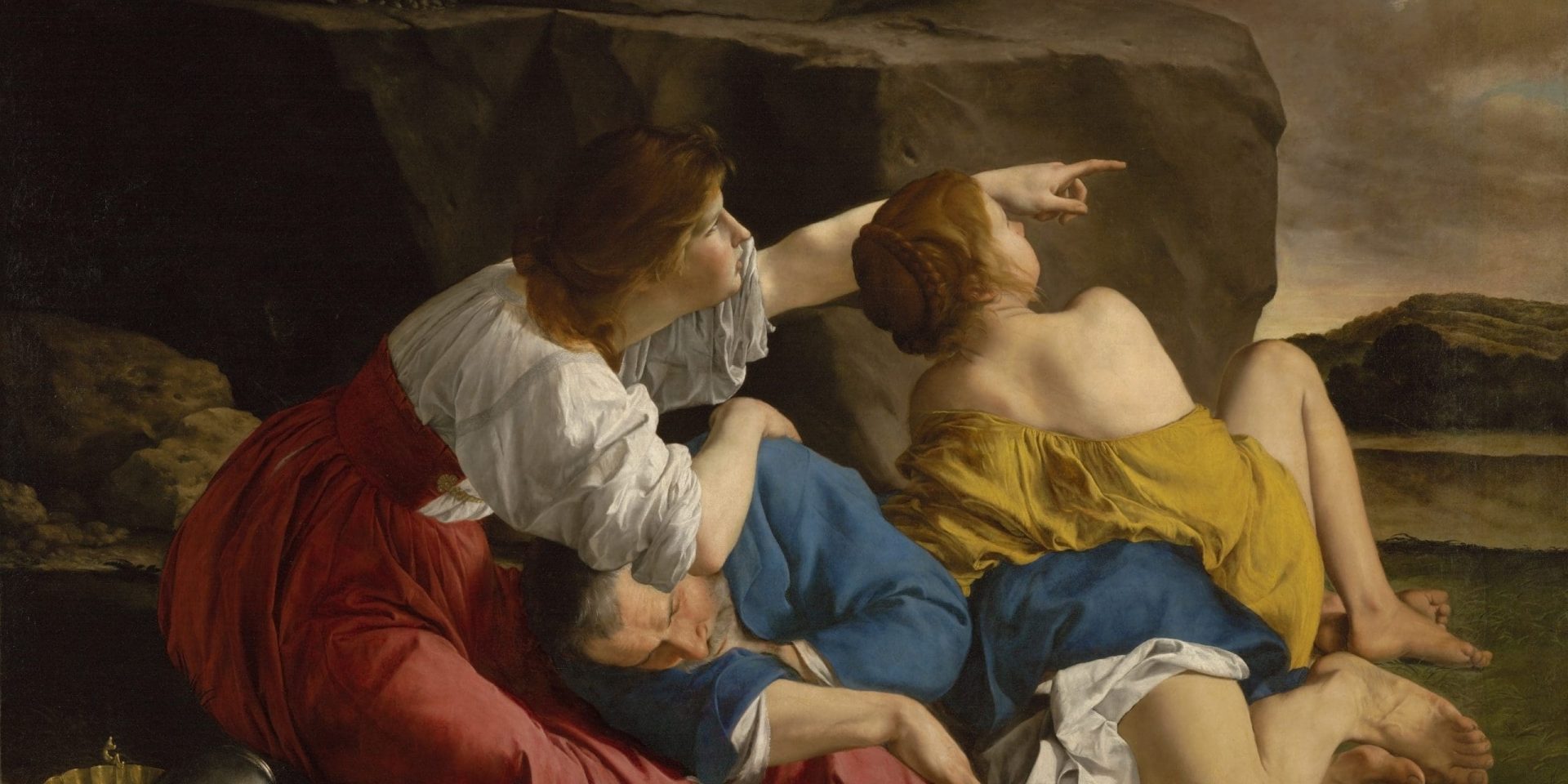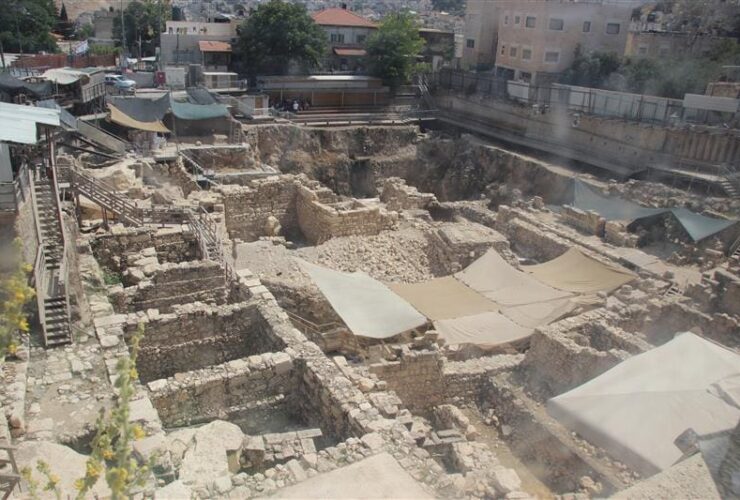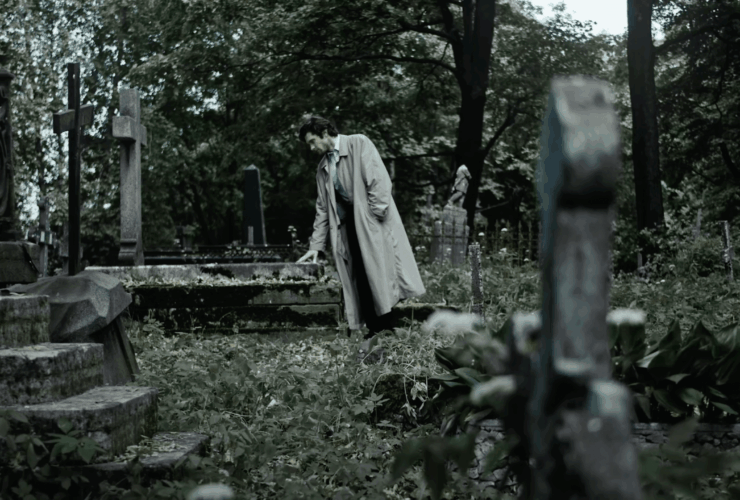As if Lot had not already sufficiently tested the grace and mercy of God by tarrying so long in Sodom prior to its destruction, he dares now to barter over real estate also. Though God, in His wisdom, instructs him to flee to the mountains, Lot pleads that he be allowed to escape instead to the small city of Zoar. Although God graciously grants his request and even spares that city from the impending destruction, Lot later leaves that place in favour of those mountains because “he was afraid to dwell in Zoar” (Genesis 19:30).
Why Lot grew fearful of living there isn’t entirely clear. Perhaps he realized the city was just as morally depraved as Sodom was and thought that it, too, would eventually be destroyed. It’s also possible that the citizens of Zoar didn’t want Lot living there because, as the sole surviving family, they may have been seen as suspicious. Whatever the reason, Lot decides to take his daughters up into the mountains to live in a cave. With all their riches and possessions destroyed in the overthrow, this family remnant went from cultured and luxurious lives to cave dwelling refugees. Worse still, Lot’s decision now to move to such a remote location also had “unexpected consequences.”[1] As the eldest sister explains: “Our father is old, and there is no man on the earth to come in to us” (v. 31).
Considering that they had just come from Zoar, which was still inhabited, her words are rather surprising. Were the men of Zoar unavailable? If indeed the people there saw Lot’s family as a bad omen then their men may not have been willing to marry them especially since the married parts of the family had also died.[2] the Of course, we might also ask why Lot didn’t return to Abraham? Did they truly believe that the whole rest of the world was destroyed as well? While we can only speculate, Lot’s daughters conclude that their isolated existence will make finding husbands next to impossible. Their fiancés are dead and, except for Zoar, all the land for as far as they can see is devastated. Tragically, “rather than prayer or investigation of facts”,[3] they resort to a truly abominable act. “Come,” says the firstborn, “let us make our father drink wine, and we will lie with him, that we may preserve the lineage of our father” (v. 32).
“Come, let us make our father drink wine, and we will lie with him, that we may preserve offspring from our father.”
Genesis 19:32
For two consecutive nights they did this: “So they made their father drink wine that night. And the firstborn went in and lay with her father, and he did not know when she lay down or when she arose. It happened on the next day that the firstborn said to the younger, ‘Indeed I lay with my father last night; let us make him drink wine tonight also, and you go in and lie with him, that we may preserve the lineage of our father.’ Then they made their father drink wine that night also. And the younger arose and lay with him, and he did not know when she lay down or when she arose. Thus both the daughters of Lot were with child by their father” (Genesis 19:33-36).[4]
From this unholy union came the fathers of two nations—both bitter rivals of Israel. To the elder sister was born Moab (a name literally meaning “from father”). His descendants were known as the Moabites. And to the younger was born Ben-Ammi (meaning “son of my kin”) who became the father of the Ammonites.
It is highly ironic that Lot had earlier offered up his two daughters to the Sodomite mob but in the end he himself is hoodwinked into an illicit union with them. Truly, the women’s solution to a difficult situation is just as repulsive as Lot’s was. And while the Bible never openly condemns this incident, the fact that the women knew their father would never willingly consent to such an act shows that it was unnatural. Furthermore, although this episode does predate the Mosaic Law which strictly forbids incest, the well-known laws of Hammurabi were contemporaneous with this time period and forbade such unions as well.[5] But instead of praying to God for a solution, they decided to go the way of the Sodomites. As the old adage goes, Lot could take his daughters out of Sodom but he couldn’t take Sodom out of his daughters.
Even though Lot’s poor life choices led him to this tragic point, God still preserved his life—primarily, because God remembered Abraham (Genesis 19:29) but also because in God’s eyes Lot was righteous (2 Peter 2:7) and God does not destroy the righteous with the wicked (Genesis 18:16-33).

Ryan Hembree is a daily co-host, speaker, and writer of Bible Discovery. He also hosts a YouTube channel that shows the unity of the Bible and how science and Scripture fit together. Ryan also has an honorary Masters of Ministry in Creation Science from Phoenix University of Theology.
[1] T. D, Alexander, NIV Biblical Theology Study Bible, note on Genesis 19:31-36.
[2] Arnold Fruchtenbaum, Ariel’s Bible Commentary, The Book of Genesis, 330.
[3] Jack W. Hayford, New Spirit-Filled Life Bible, note on Genesis 19:31.
[4] Note the close parallels to Noah’s account. Just as with Noah (9:21-24), sexual immorality is associated with alcohol abuse (T.D. Alexander, NIV Biblical Theology Bible, note on Genesis 19:31-36). And both of these failures occur after divine judgment.
[5] Even though the Mosaic Law hadn’t yet been given, it appears that there was some sort of a proto-law. For example, even by Cain and Abel’s time God had standards for sacrifices (Genesis 4) and Noah was instructed to distinguish between clean and unclean animals (Genesis 7).






